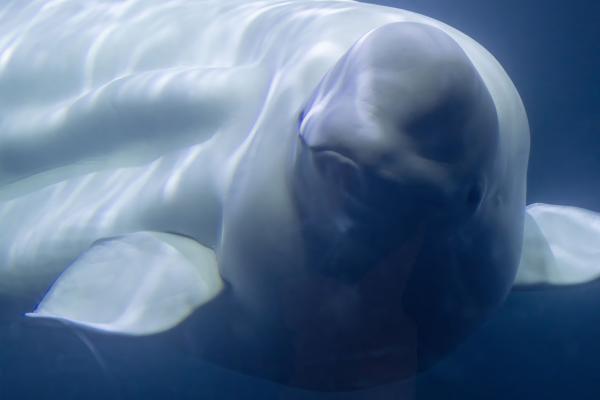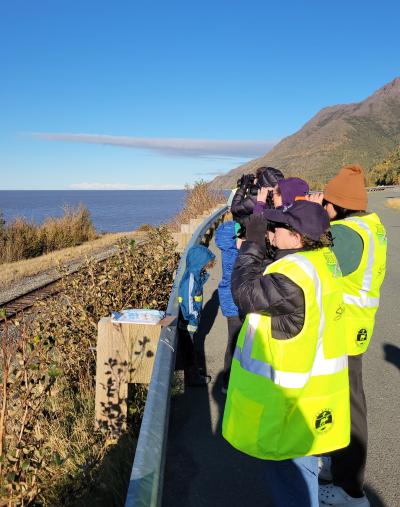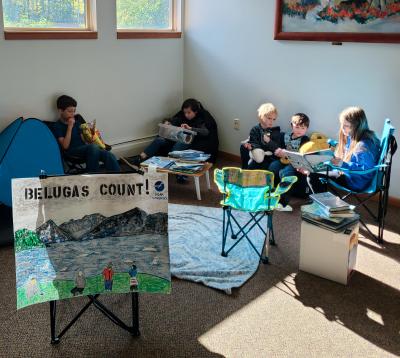
Beluga whales, known for their distinctive white color and vocal nature, are one of Cook Inlet’s iconic species. They are highly social animals and use a variety of sounds to communicate, earning them the nickname 'canaries of the sea'. Unfortunately, Cook Inlet belugas are endangered, facing numerous threats such as habitat loss, pollution and disturbances from human activity. Alaska’s annual, volunteer-driven Belugas Count! event helps raise awareness and contributes to the protection and conservation of this iconic species.
Organized by the National Oceanic and Atmospheric Administration’s National Marine Fisheries Service (NOAA-Fisheries), Belugas Count! 2024 brought the community together Saturday, Sept. 21, for a day of whale watching, learning, and conservation. At 22 designated viewing stations around Cook Inlet, the event offered participants the chance to help spot and count beluga whales while contributing to critical conservation efforts.
Five BOEM Alaska OCS Region staff members volunteered: Oceanographer Greg Deemer, Geologist Vilma Perez de Pottella, Data Archivist Catherine Rosso, Information Specialist Anne Almario, and Marine Ecologist Dr. Christina Bonsell, who coordinated the team’s efforts. BOEM managed the observation site at Windy Corner along Turnagain Arm, where the team recorded two beluga sightings during the designated observation period.
In total, there were 88 beluga sightings reported during the event (although, because there were multiple stations along Turnagain Arm, that total might include recounts of the same whales as they traveled up and down the coast). Staff at the viewing stations recorded approximately 1,700 visitors who showed up and interacted with the staff, asking questions and learning about beluga whales and the ecology of Cook Inlet. BOEM staffers at Windy Corner alone spoke with more than 120 such visitors.
“We had a wide range of visitors, from tourist families to local folks who have been ‘beluga spotting’ for decades,” Bonsell said. “It was wonderful to share in the excitement about Cook Inlet belugas and promote public engagement with conservation efforts.”
There was also a celebration during the afternoon at the Anchorage Zoo, where BOEM Biologist Kim Klein organized a beluga-themed children’s reading corner. About 500 visitors stopped by to take part in activities and learn about belugas from scientists.
The event aimed not only to gather data but also to inspire a greater appreciation for the marine life of Cook Inlet. By participating, community members played a direct role in the conservation of these iconic whales and helped raise awareness of the importance of protecting Alaska's natural heritage. BOEM was thrilled to be part of this important day for Cook Inlet belugas.



